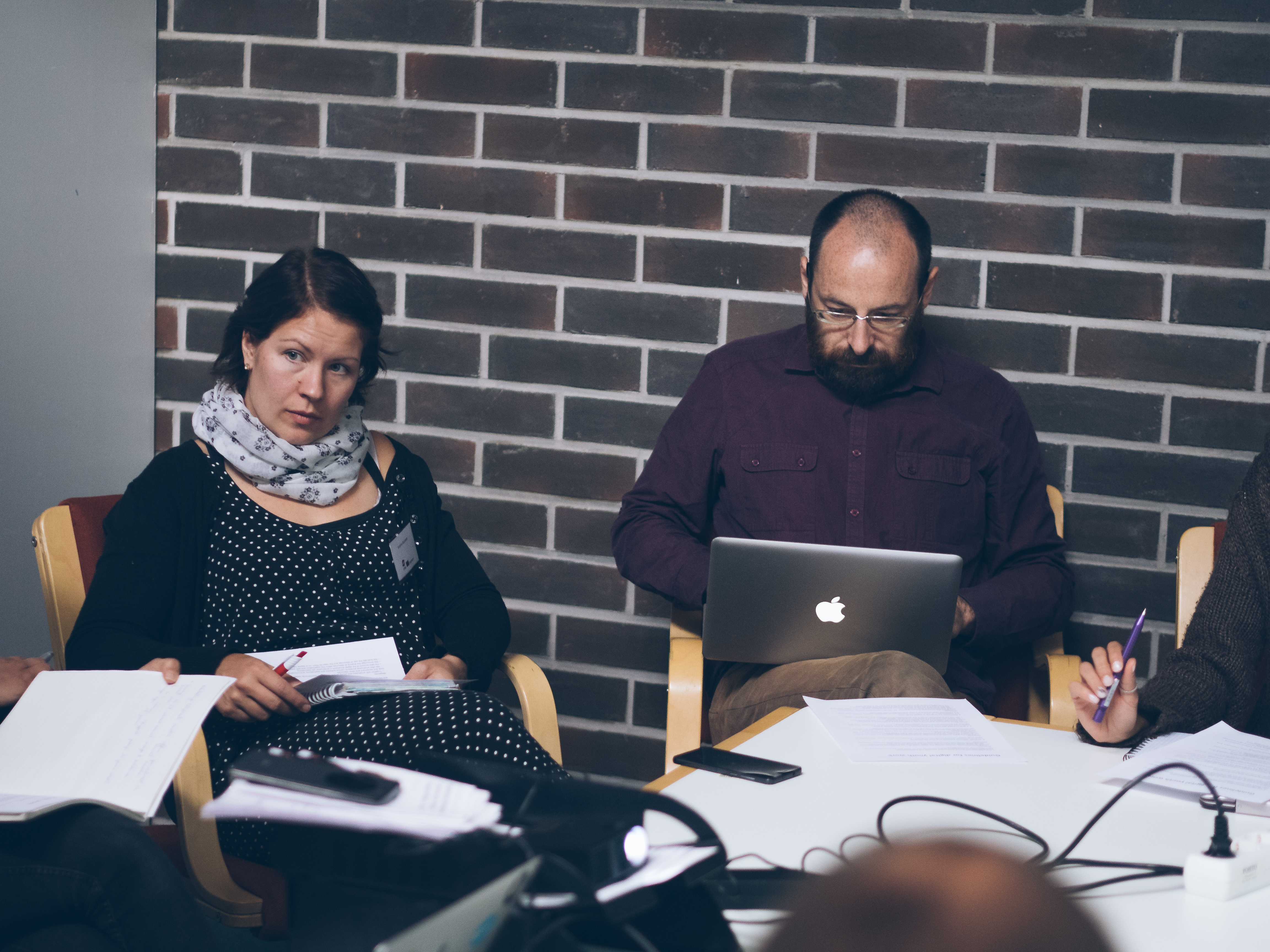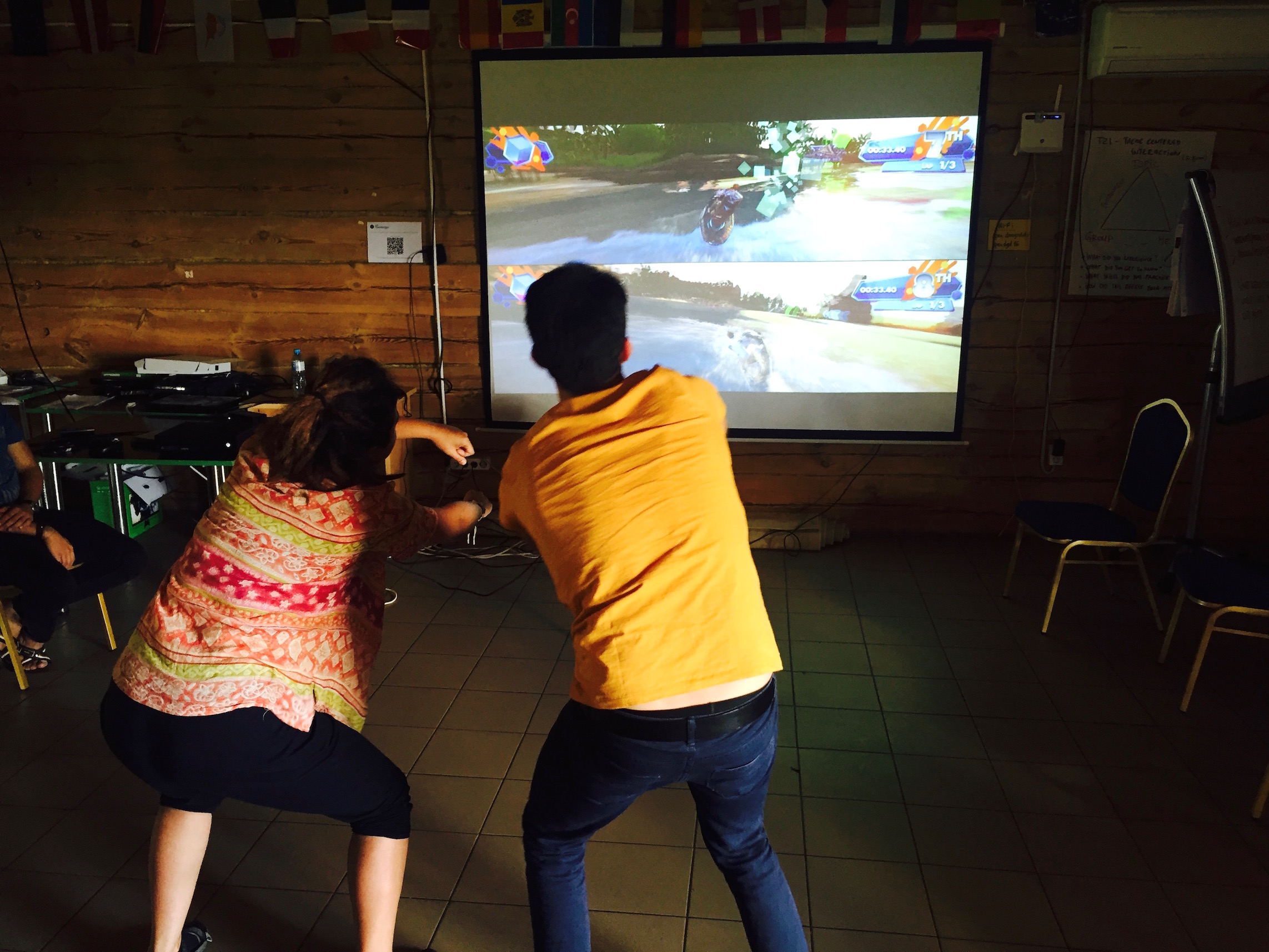-

How to choose effective tools for youth exchanges
“A youth exchange is more than a holiday!?” This was the opening statement for the international training course “Tools for Youth Exchanges” in Finland. A rather provocative statement for the youth exchange organisers attending this training course, but very fitting to the idea behind this training. Many young people who take part in the youth […]
-

Recommendations for developing digital youth work
“Screenagers” research project, which we used extensively as a reference in our seminar, has in their research report identified some guidelines for youth work organisations on how to develop digital youth work: Strategic financial investment in infrastructure, hardware, professional development, and practice development. Meeting the identified training needs of youth workers at all levels, from […]
-

Different realities, different approaches to digital youth work
The programme of the seminar “Developing Digital Youth Work” was structured in a way to try to illustrate the point that digital youth work has many different available approaches. Like previously stated, digital youth work methods have been developed very differently in different countries. This goes to show how youth work, whether online or offline, […]
-

Youth social media realities
One of the most important principles of youth work is to be where the young people are. When Facebook was growing in popularity among young people, youth workers were still stuck on discussing pros and cons of interacting and engaging with young people on Facebook. Now, when finally youth workers are there, online and ready […]
-

Online youth participation
The rapid advance of Internet technologies and online environments gave promise to lower the barrier for young people to engage in civic affairs. Survey data concluded in the EU Youth report 2015 shows that virtual spaces frequented by young people can be compared to the physical ones and thus be “a great resource for political […]
-

Defining the concept of “Digital youth work”
Although we naturally sent out lots of material to our participants from 16 countries beforehand, we also had some unexpected help to “set the stage” for our seminar. The in-flight magazine on the flight from Helsinki to Oulu featured an article eight pages long about the changing curriculum and teaching approaches in schools across Finland. […]
-

Playing catch-up with the digital (r)evolution
In Europe digital youth work methods have seen a significant growth in interest over the last few years. This is a direct result of the increasing prevalence of technology and increased pervasiveness of digital tools and networks in young people’s lives. The use of digital tools is now more commonly than ever accepted as a […]
-

Virtual reality is entering non-formal education
By Giedrė Simanauskaitė Giedrė Simanauskaitė is a member of the Lithuanian Association of Non-Formal Education and communication expert. With a cardboard box on their eyes people stood one by one and shook their heads. “This is strange,” I thought to myself. “What are they looking at?” Later, when talking to participants of the “Off Roads” […]
-

Expeditions – Learning on the Move
How do you motivate young people for physical activities in rural areas, seemingly boring environment? They just sit and play video games, you say? In fact, Eurobarometer states, that youngsters in EU lack physical activity. At the same time the tendency is obvious that young people use increasingly more new technologies and 80% of young […]
-
The summary of results from the 1s edition of Massive Open Online Course (MOOC) about Erasmus+ funding opportunities for youth. The MOOC was prepared and facilitated by 2 members of Nectarus team. This course will be repeated for the 2nd time during 2-30 November 2015. The registration is open until 20th of November. Create free […]
